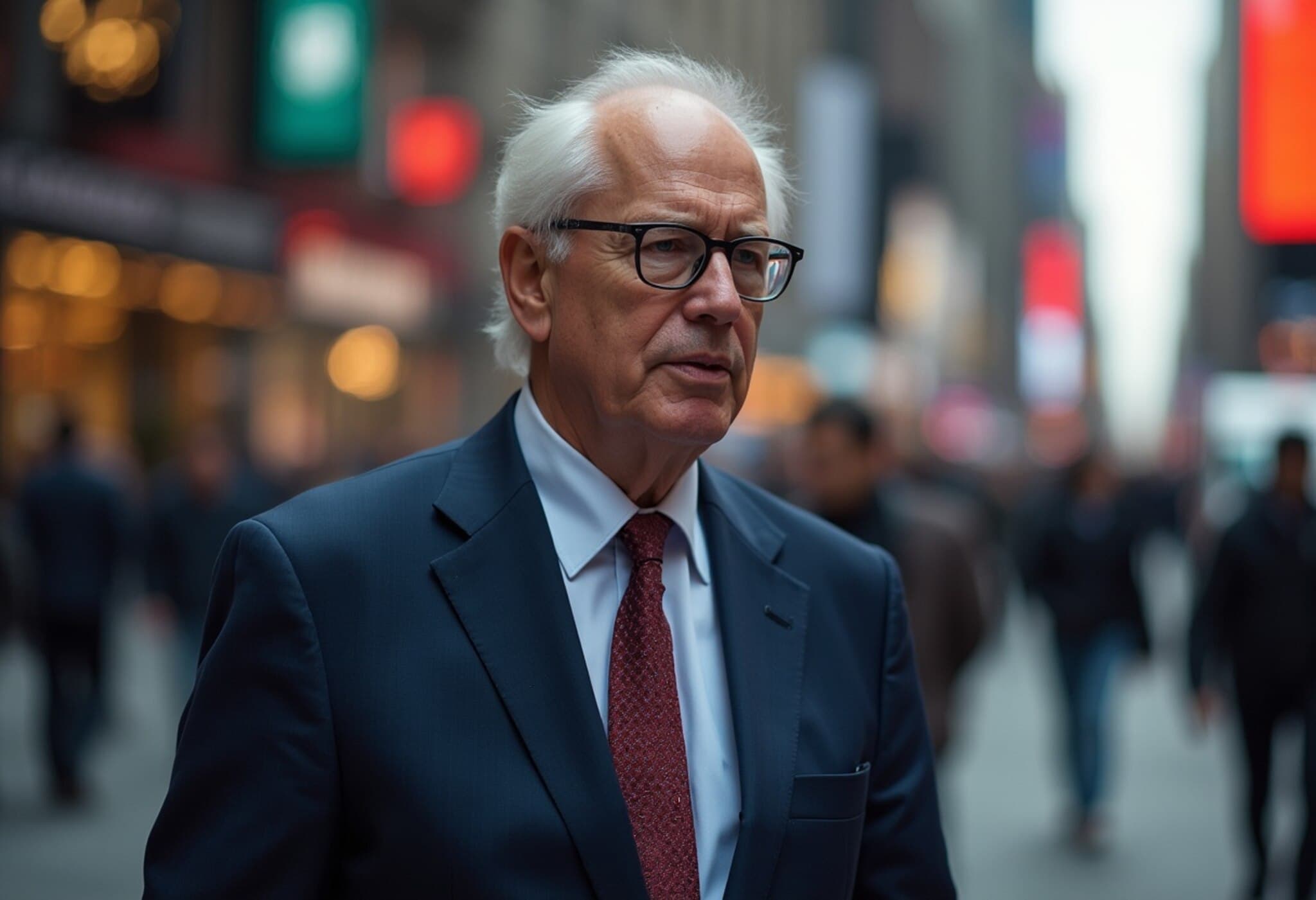Five Key Market Developments to Watch Before Thursday’s Opening Bell
As markets brace for another day of trading, investors and observers face a complex blend of political maneuvers, regulatory battles, corporate earnings, and market recalibrations. Here are the five critical updates shaping Thursday’s stock landscape.
1. Mixed Signals on Fed Chair Jerome Powell’s Future
President Trump’s public backtracking on rumors about firing Federal Reserve Chair Jerome Powell has left markets in a cautious mood. Reports emerged that Trump sought input from House Republicans in a private Oval Office meeting about whether Powell should be dismissed. While some insiders indicated the president was inclined to act, Trump ultimately characterized such a move as "highly unlikely, unless he has to leave for fraud." This uneasy dance between the White House and the Fed has caught investor attention, especially as Trump continues to pressure Powell to ease monetary policy, notably interest rates. The ongoing tension reflects broader uncertainty about the Fed’s independence and the administration’s monetary strategy—factors that investors must weigh carefully when positioning portfolios.
2. Crypto Legislation Faces Uphill Battle in House
In an extraordinary marathon session, the House of Representatives debated and advanced three cryptocurrency regulatory bills, marking the longest open vote in modern House history. However, the strenuous voting drama—highlighted by extended opposition from some Republican members—casts doubt on the bills’ eventual fate. The lack of party consensus raises vital questions about the U.S.’s regulatory path forward in the crypto sector, an industry that continues to challenge lawmakers globally. Investors should watch this closely, as regulatory clarity (or the lack thereof) often triggers volatility across digital asset markets and related equities.
3. PepsiCo Surpasses Expectations Despite Volume Pressures
PepsiCo’s latest quarterly report surprised analysts, posting earnings and revenues above expectations. Notably, shares jumped about 3% in premarket trading. However, underlying volume metrics tell a nuanced story, with global food product volumes dipping 1.5% and beverage volumes holding steady but unimpressive. CEO Ramon Laguarta emphasized improving conditions within the U.S. market, signaling optimism amid a challenging environment for consumer staples. The company reaffirmed its full-year outlook, predicting flat core constant currency earnings per share and modest revenue growth. For investors, PepsiCo’s resilience underscores both the risks and rewards inherent in consumer brands during inflationary periods and shifting demand.
4. United Airlines Adjusts Profit Estimates Amid Operational Headwinds
Airline sector volatility continues as United Airlines revised its profit guidance to a midpoint between previous projections for 2025. The company missed second-quarter revenue targets but delivered earnings per share above estimates, even while confronting unexpected challenges from reduced flights at Newark Liberty International Airport due to FAA restrictions and staffing shortages. Analyst Tom Fitzgerald from TD Cowen estimates operational disruptions cost United a pretax margin hit of about $218 million in Q2. Although coach-class domestic travel demand remains tepid, the airline is buoyed by stronger premium and international bookings, signaling a gradual recovery trajectory. This dynamic warrants attention as travel rebounds unevenly and cost structures shift amid regulatory constraints.
5. Tesla Faces Investor Pushback Over Controversial Bylaw Amendment
Corporate governance is front and center as New York State pension officials challenge Tesla’s recent bylaw change raising the ownership threshold required to file derivative lawsuits from 0.1% to 3%. The New York State Common Retirement Fund, a notable shareholder with approximately 0.1% stake, has accused Tesla of a "bait-and-switch" tactic designed to deter shareholder oversight amid the automaker’s proposed incorporation move from Delaware to Texas. This proxy battle raises broader concerns about shareholder rights and transparency within major U.S. corporations, especially those led by high-profile executives like Elon Musk. Investors should note such governance disputes can influence stock valuations and long-term trust in management decisions.
Editor’s Note
The day’s market narrative reveals an intertwining of political uncertainty, regulatory brinkmanship, and corporate adaptability. From the Fed’s contested leadership to the crypto sector’s legislative challenges, and from established consumer giants navigating shifting demand to airlines contending with operational friction, investors face a landscape marked by complexity and risk. Most notably, Tesla’s governance dispute reminds us that shareholder activism remains a vital, often overlooked, determinant of company trajectories. As traders and policymakers grapple with these forces, maintaining a balanced perspective on both macroeconomic signals and micro-level developments is essential to informed decision-making.



















